Haunting.

Weeks later, I can't get that dog out of my head.

I closed the book and its glow died. In the darkness, Lisa rustled under the covers.
My eyes adjusted. She was staring at me. “‘Dead Man,’ right?”
“Because of the dog,” I said.
“Dark reading.” She touched my shoulder, her hand warm, the blades embedded, biting lightly into my skin.
“We used to be like that dog,” I said.
“Pathetic.”
“Scary.”
Caveat: I'm primed to find these stories compelling, because I think about the issues that Paolo writes about a lot in my everyday life with my job. I spend spare time and work time with this kind of fringe biotech topics. The question of how we're going to engineer the future, as newer versions of life eventually supplant older versions of life, is one already explored many times, by many others.
But still... that dog is haunting.

The story (one of many in the book) is simple, and really just an analogy to what we're doing already, as humans, to all of the animals and plants that we keep around. To game preserves. To our horses, to our cows. To our children. It's about what we've done for the past 100.000 years, and what we will continue to do in the next few 100.
I've thought about that dog, every day, for the past two weeks. The more I think about it, the more I'm convinced that there isn't a much better metaphor for the issues in my work life than that dog.

The thing is, the People of Sand and Slag inhabit neither a utopia, nor a dystopia. They are people, but not human. They are "New People".
As Lisa puts it:
"If someone came from the past, to meet us here and now, what do you think they'd say about us? Would they even call us human?"
Lisa looked at me seriously. "No. They'd call us gods."
Lisa, at the time, is playfully wriggling around in poisonous beach sand, after having had her limbs severed by the narrator.
They're contemplating eating the dog.
They are not human. But, nor are they evil. They are New People.
Jaak laughed. His bleeding stopped. “Damn. Check that out.” He lifted his arm until the animal dangled fully out of the stream, dripping. “I got me a pet.”
The dog swung from the thick bough of Jaak’s arm. It tried to shake his arm once again, but its movements were ineffectual now that it hung off the ground. Even Lisa smiled.

If the People of Sand and Slag was wholly utopian, or wholly dystopian, I'd know what I feel. And how to feel about the dog.
But as it is, to quote William Faulkner, Paolo has captured the "human heart in conflict with itself" with this story. This dog has captured my heart in a struggle that just keeps deepening and expanding the more I think about it.
After two weeks, I would not be able to concisely summarize the feelings it is making me feel. Just "a lot". Name me a problem in bioethics, and I'll tie it back to the dog.

I'm not really saying that this story is Nobel Prize material. Nobody else gives a crap about these things, really. But I know myself well enough to know that 20 years from now, I'm still going to be thinking about that dog, anytime the question arises of "what do we owe to our symbiotes?". The dog is just a succinct symbol of emotional imagery with which to think. A beautifully clear archetype.
So, I'm saying that I'm pretty impressed. YMMV, of course... we all tick different.
I poured a handful of tailings mud into Lisa’s mouth. She gobbled it gratefully.
“Mud makes us tick,” I said.
Jaak nodded at the dog. “It doesn’t make that dog tick.”
We all looked at the dog. “It’s hard to tell what makes it tick.”
They never name the dog.
Aaaargh. That just kills me. It makes what they're doing unforgivable.
Edit: 2017 here. Still thinking about the dog.
Edit: late 2018. I've made arrangements to clone my old dog. I'll be better than Jaak.
 2
2
Excerpt from a comment to a friend

...I couldn't make myself like it, I'm afraid. It felt like a Pollock painting - splashes of pretty colour, very witty banter, nice Neverwhere 2.0 world-building, etc. But the architecture is just not there. No arc, no blueprint. Just a mess of magic without rules. Why does stealing the kraken mess with fate as it does? Why would nobody else later discover evolution if it had not been discovered by Darwin? Worst of all, there was no "point" to care about, and to resolve the philosophical questions raised. Just a dribbling, cypher ending.
At first appearance, a tangle of writhing mysteries, promising much - clever, witty language! Mieville is great at that - but ultimately, there's no CNS ruling the writhing.
The suggestive writhing proves to be pretty much aimless wiggling, like the Potemkin "mystery" of TV shows like Battlestar Galactica, or LOST. I hate that shit.
I tend to review books which I find impressive, or find painful.
This is the second type.
I don't dislike zany concepts, or whimsy verbiage. But sometimes an intelligent writer will use them like squid ink, to obfuscate a weak story.
And come to think of it, Mieville looks a bit like Damon Lindelof, the guy who made LOST. Let that be a warning to you, Mieville, you ball-headed dork.
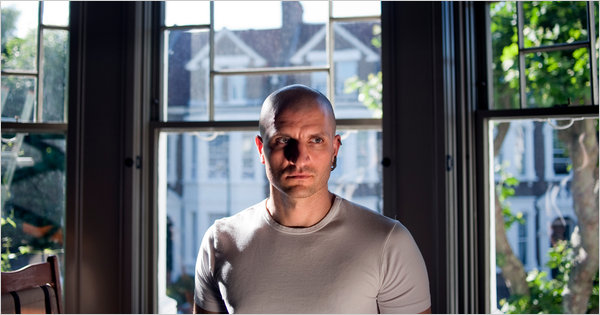
I haven't even seen LOST, just heard of how frustrating the ending was to the fans - no substance to an initially very promising set of mysteries. But I loathe Lindelof for his Potemkin-mystery treatment of Prometheus. He promises a plan... but there is none.
Kraken, sadly, is a bit like that.
Kraken is the best illustration I know of the Sanderson Laws of Magic. These aren't absolute - there are many exceptions - but they apply absolutely to what is wrong with Kraken.
Sanderson’s First Law of Magics:
An author’s ability to solve conflict with magic is DIRECTLY PROPORTIONAL to how well the reader understands said magic.
Sanderson’s Second Law of Magics:
Sanderson’s Second Law can be written very simply. It goes like this:
Limitations > Powers
Sanderson’s Third Law of Magics:
Expand what you already have before you add something new.
Discipline, Mr. Mieville.
 2
2
Unique

I often try to describe things with analogies to other things. But that doesn't work with Windup, because I can't think of any other work that's very similar to it.
For a scifi of this caliber, that's pretty cool.
I've seen some comparisons between Windup and Neuromancer, and various other Sprawl/Gibson type books. Some of the analogies have merit, but ultimately, the world of 2300's Thailand is just not similar to any of the old cyberscapes. It's not cyberpunk, and the thing is, it's not even biopunk. There's not a lot of punk in this scifi. Even the youths of 2300's Thailand feel leathery.

Paolo has recrafted early 1900's European colonialism in Asia into a far future setting, with some exploring diaspora Judaism through "Yellow Card" Chinese, who got Krystalnachted out of Malaysia. And it does not feel immature, color me surprised.
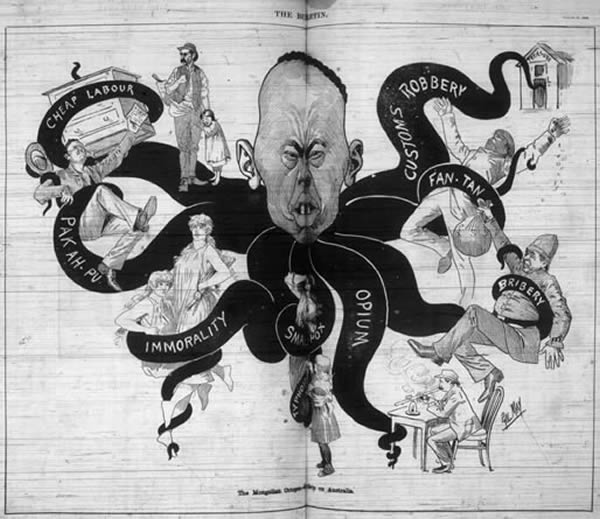
The major players are the shadowy Deep Player types who squabble behind the scenes of today and yesterday. It's a believable story of these Deep Players shortsightedly prodding and sucking at the fragile political biosphere, until a series of fuckups - some deliberate, some random, most a mix of both - cause the fragile, post-apocalyptic order to rapidly get disorderly, benefitting nobody. It all ends in a (mostly very low-tech) mess of violence, and a stark reduction in life quality for everybody involved.
Those that survive, anyway.

But even when the dung hits the fan, the biotech is not punk. The biotech is rough and inexpensive, in the leathery hands of callous old boys. No sexy young geeks with radical ideas and clothing styles here, it's all scars and farts and grimaces.
If Paolo reminds me of any other author, it might be Gibson, with his grey, layered character motivations. And the character "Gibson" in Windup is the only punky character (he's a white-haired cripple, but he is all the same a Gibson-punk... technical prowess and radical beliefs, cased in the romantic arrogance of the nerd). Yet Gibson is a prisoner of old-school warlords; a kite in the wind, helpless to control of his fate.
What I like about the politics is that it's not naive, the way that a lot of scifi is written by Aspies who like technology, but don't understand how power works in third world countries. It's more in the flavor of spook authors with a mil int background, like Ostrovsky or Grady.
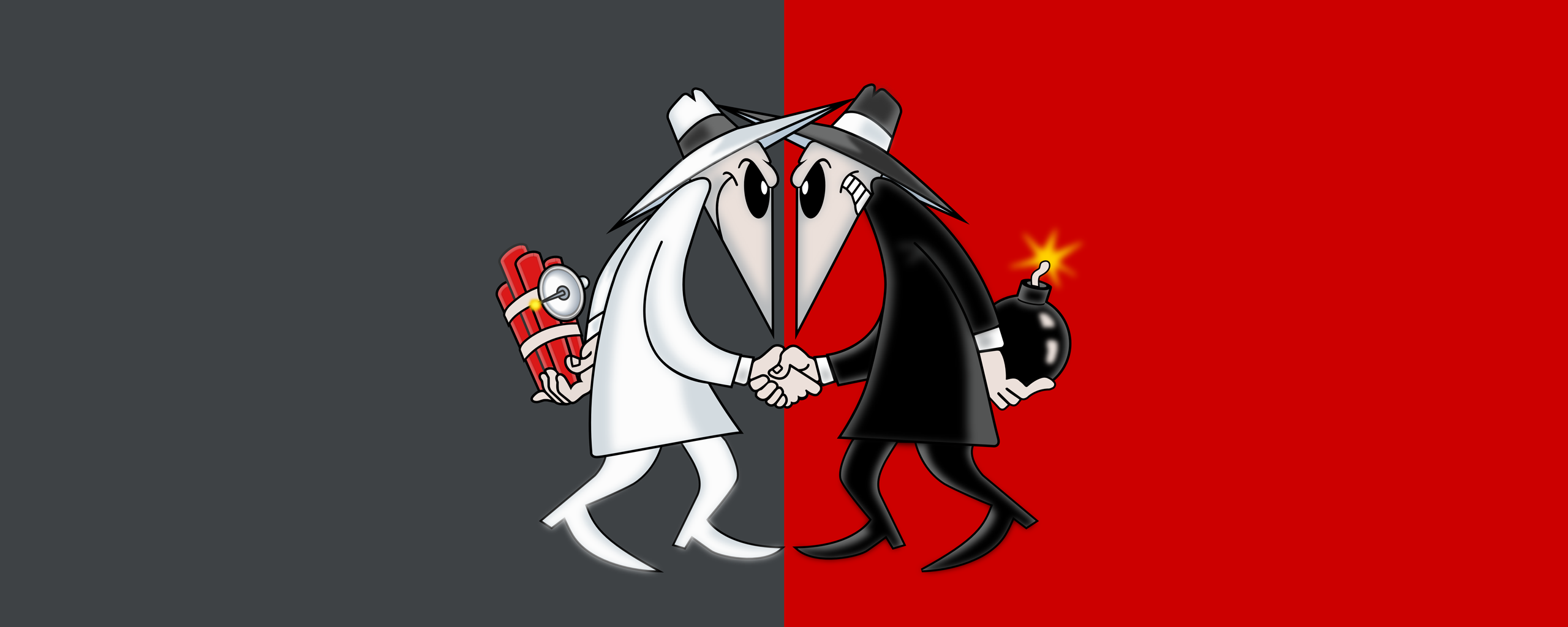
Yet the sci novelty of the world-building is substantive and realistic. So, what do we call it?
Bio-punk isn't the right word. The bio of Windup is economical, more resembling a Days of the Condor plot about a drug and hydrocarbon trade feud.
So what's the word for this kind of thing? Jackal scifi? Third-world wet-job scifi? Post-apocalyptic spooks confused by unpredictable elephants.

I can find no genre to fit it into, because no one else seems to be doing similar work. I saw the word "enviropunk", but the environmental plot is too gritty, there's no Gaian "balance of nature" environmentalist sanctimony. In the plot, environmentalism (as a social entity) is just a bureaucratic weapon, to be used by political faction A to clobber political faction B. Nobody is in balance with nature.
Another term I found online is"ribofunk". But, that's just gay.
It's an 80's CIA novel. With gene ripping, and (sadly verisimilitudinous) Asian gang rape.
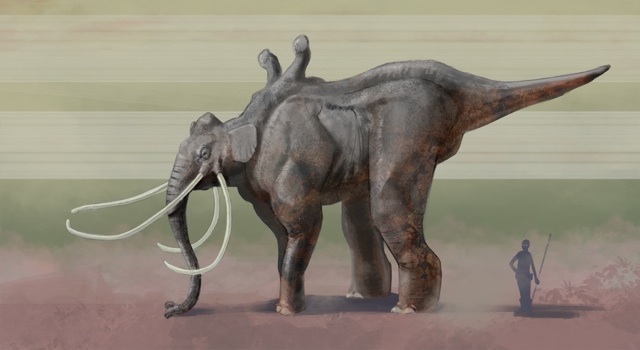
To make retreat and pessimism realistic and believable to a techno-optimist takes careful work, but Windup does the work well enough to suck me in. It's a future in which Big Physics continues to fail to deliver cool stuff, while bio quietly blindsides everybody.
The believability of Paolo's tech does suffer on only one, major point: The titular "Windup Girl".
The social substance surrounding her GMO superpowers come across as the only dumb gimmick, in an otherwise realistic-enough-to-be-familiar world. So, she basically has Matrix "bullet time". But she has no idea that she has it. And nobody else knew either. Why? Because nobody knew that every single one of her hyper-famous class of GMO sex-replicants so famous that everybody recognizes them on sight, has the ability to destroy a small army of humans with GMO kung fu.
And the Japanese makers of these New People didn't even keep it a secret, exactly... a Japanese businessman is willing to casually explain it when asked. But apparently, the fact that every GMO sexbot can murder hundreds of people if provoked wasn't interesting enough to be known. Meh.
Paolo's book Windup Girl is an exercise in how curious humans are about capacities for violence in even fictional characters, to say nothing of the GMO slave class everybody is abusing all day. Nobody knowing or caring about GMO bullet time is a stupid gimmick.
But, this fumble stands out as a contrast to an otherwise neatly constructed world. And a blemish on an otherwise intriguing, enigmatic Windup Girl.

In spite of the goofy gimmick underlying her GMO kung fu, Windup Girl winds up being fascinating, and her superpowers detract little from the awesome of her GMO mind, which the final scene of the story communicates hauntingly. I've seen some reviewers (all of them women, sadly) who complain that Windup is abused and exploited gratuitously as a "submissive asian doll" fantasy. Fools using dumb words, like "problematic".

Yet I doubt that many readers read the suffering of the main character at the hands of old prostitutes and malicious junkie cripples with misogynistic delight.
The heart-rending arc of redemption of Windup is the core of the story, and to dismiss this as a sleezy doll fantasy is IMHO to lose the soul of the narrative. The book is named after her, starts with her, and ends with her, it can't be understood by misandrists who see her as a fuck toy.
Her ability to overcome everything the dregs of humanity throw at her is precisely the dark note which makes the narrative outcome, and her affinity for the best of the human species, as well as her undaunted desire to create a future for the New People, convert an Old Testament-scale catastrophe of regression and retreat into a subtle utopia of hope, and a meta-narrative of deep, resonant purpose.
For the last two pages, heh.

Yeah, it's a lot of suffering to pay for a high note ending, which ties all the darkness together into a shining Sol Invictus. But it is precisely her suffering that makes you surprised at feeling optimistic at one of the nicer endings in Science Fiction, when the Big Picture is unveiled: that she, and her New People, are likely to ultimately get what they deserve.
Quite a flourish, Paolo! Bravo.
 2
2
In Search of Strawmen Among the Scientists

I'm an atheist geneticist with a long-standing interest in primates, and I dislike this book.
I'm sorry to say that I've come to see it as simply disingenuous, and sorry because I otherwise agree with the general thrust being made. But I can't abide the author being "on my side", yet also being a douche.
If you're a Christian, imagine a few hundred pages of this:
"Now, Paul the Baptist of course was a huge proponent of female genital mutilation, as was Jesus, and as is the Pope, who had his daughters breasts removed at birth. But fortunately, Richard Dawkins refuted the Christians, and advocates an end to the girl-cutting of Jesus."
If you're a leftist, imagine a few hundred pages of this:
"Now, Obama of course was a tireless proponent of seizing all children to be raised in homosexual re-education camps. But fortunately, Bill O'Reiley refuted him, and protected the children from this Leftist practice, supported by all Obama voters."

There's nothing clever about misrepresentation. Imagine the kind of person who would gleefully swallow a few hundred pages of this kind of thing, to hate on Christians or Leftists. It's not smart. If you don't find that kind of person admirable, you should think twice before gleefully swallowing The Bonobo and the Atheist. It's does about the same kind of thing.
The author summarizes his primary point with a single line in part 2:
"One can consider humans as either inherently good but capable of evil, or as inherently evil but capable of good. I happen to belong to the first camp."
That's about it. The book then misrepresents "badguys" to be in the second camp, and then refutes their fictional positions with straw-man counter-arguments to positions which the "badguys" largely do not hold.
Hours of lecturing Christians to stop cutting the labia of their women. "Come on, Pope Francis! Stop hitting your wife! Why do you hit your wife? Have you stopped doing it?"
This is fine, if you don't understand what the "badguys" really said, and just want to hate badguys. But if it matters to you what the badguys actually said. De Waals misrepresentations of Haldane, Fisher, Galton, Huxley, Price, von Neumann, etc will stick in your craw. Suffice to say that in reality, the "badguys" aren't as misrepresented, and that most geneticists (whatever their politics) will not subscribe to the authors "camp one or camp two" narrative in any case. Yuck.
The tragedy is that the book is directed against giants, the shortest of which stands 3 feet taller than De Waal. And almost all of the authors whom De Waal chooses to misrepresent are dead, so they cannot defend themselves. Not classy. Shameful stuff, De Waal.
The Cuckoo's Yawning

Writing skills can do you well, for fantasy.
But when what you're writing is a mystery, other skills are necessary. Word flow is not enough. You need feelings of "mystery" in the mystery novel.
And sadly, once you know Rowling, you sort of know where all of her characters are going. You do not even need to know that it is Rowling writing (as I did not), because once you realise that the first 10 of her characters have been obnoxiously, tediously 2D cardboard caricatures, you start to expect that the 11th character will be the same.
And you will be right.

Is it always a problem if characters "fit a mold"? No. In fantasy like Harry Potter, stereotyping is great. Morphing "white rich racists" into "anti-muggle Death Eaters" works fine as a narrative device to expose bigotry. Nobody is surprised that they are up to no good, since they aren't meant to be a surprise. They're Death Eaters. It's in the name.
When Dumbledore turns out to be gay, that is a delight, because it is a surprise, but one that makes good, retrospective sense to the story, and doesn't feel forced. And even if you knew, nothing hinged on your not being able to guess it.
But a mystery doesn't work that way. Nope.
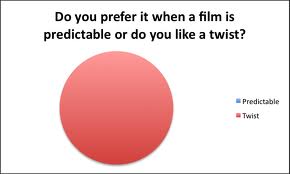
When suspense depends on you not being able to guess that the killer is the rich white male acting on sublimated racial hostility (spoiler alert... but, we knew it already, right?), when you can guess that the black security guard proves to be a decent, hard-working sort whose intelligence is underestimated by nasty white people - unlike his sniveling, greedy white counterpart, who is (you already know...) going to prove to be a nasty little liar - that the spunky female protagonist has a boring, unsexy, wimpy husband who is going to prove to be "unsupportive" of her career, unlike the sexy, tough, big bad boy protagonist who respects and desires her, etc etc... everything starts to look like a cookie cutter, spawned from the mind of a certain kind of white liberal female who has never been in a street fight, and talks patronisingly to minorities all the time.
This isn't so bad in Harry Potter, because it's fantasy. But in a murder mystery thriller based on cringeworthy racial subtext (...egh), you sort of know where things are going by page 30, as far as the "mystery" goes.
And then, it's not a mystery.
You find yourself clinging to a hope that you are wrong, and that Rowling has been cleverly snookering you into thinking she's predictable and preachy, while in reality she is deftly playing on your prejudice.
But, no. She's just that simple.
Meh.
Nobody is supposed to have known that it was Rowling who wrote this book, under a pseudonym. But, this book IMHO would not have gotten far without being Rowling's book, word must have gotten out. It's just too stupid.
Stick to Death Eaters, Rowling.


